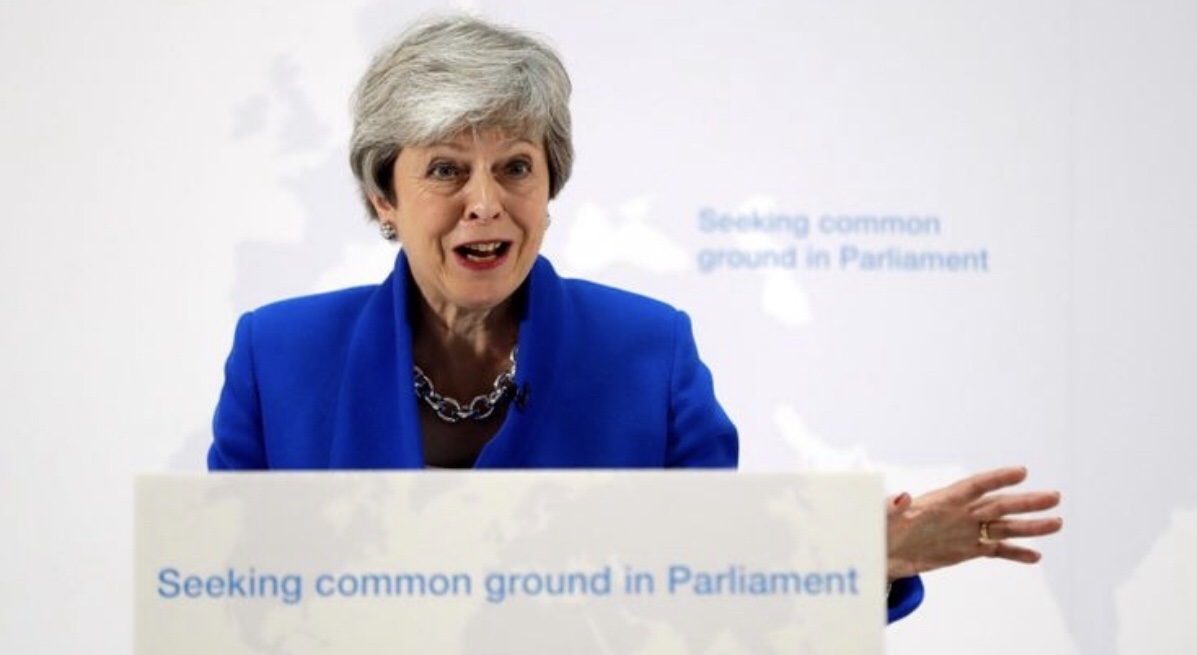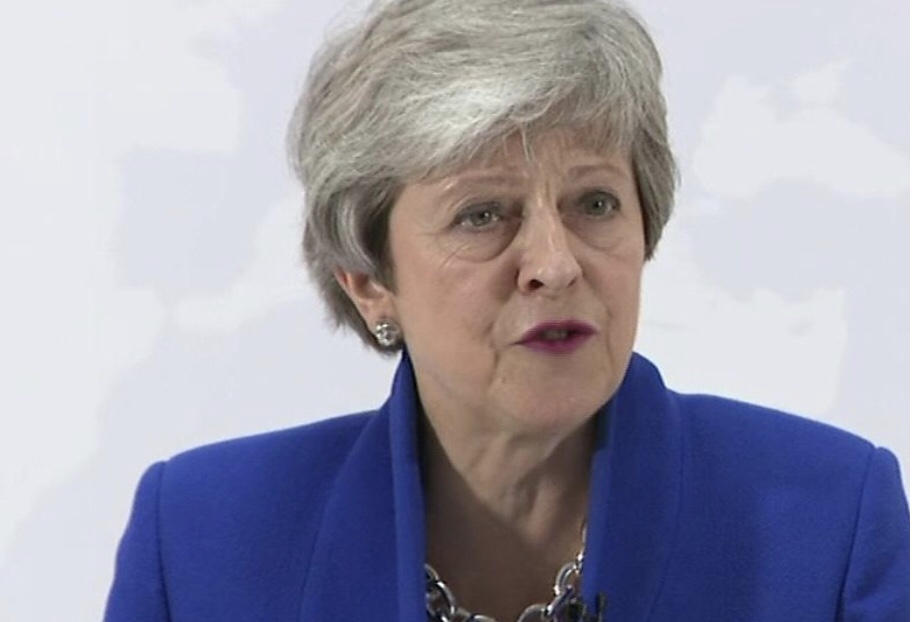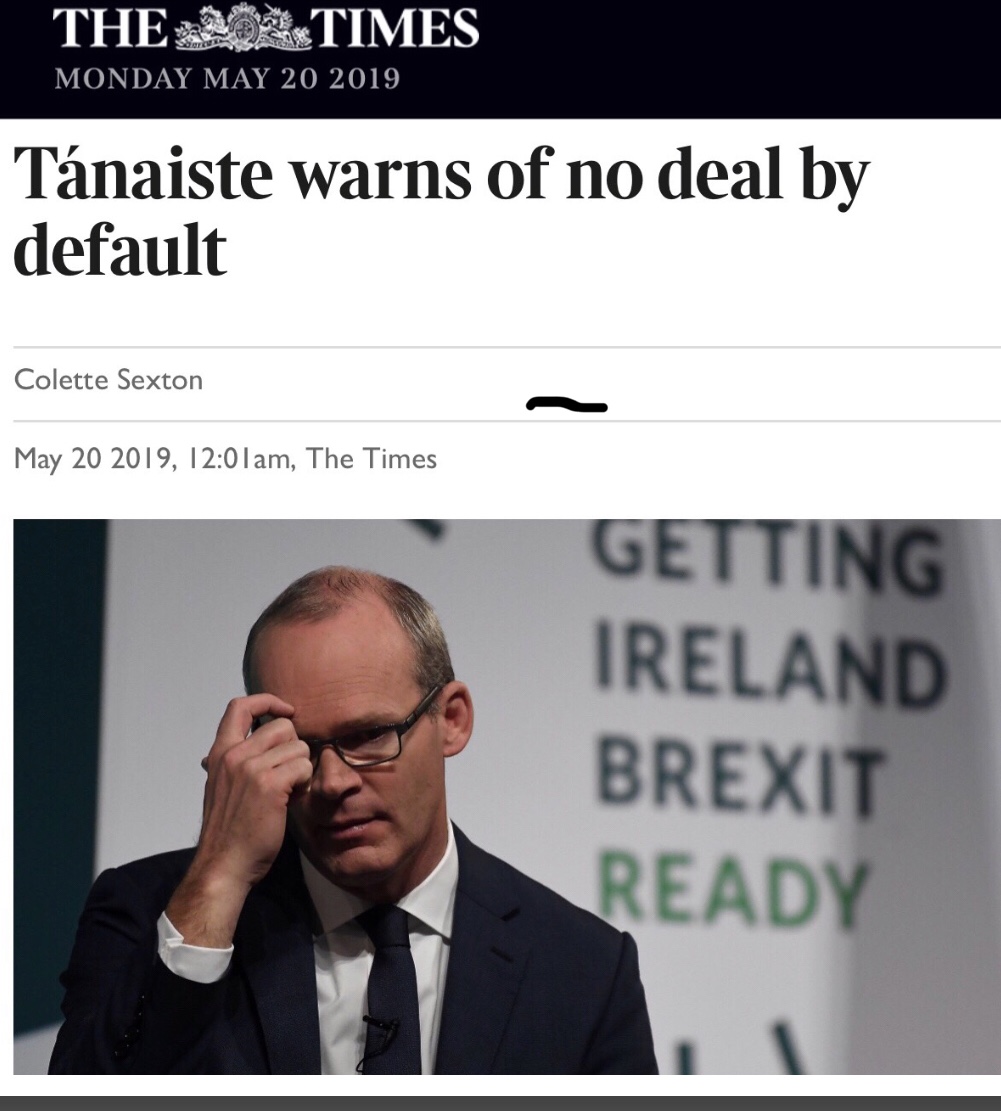The New Brexit Deal presented by Prime Minister Theresa May tonight makes a ten-point offer to everyone in Parliament who wants to deliver the result of the referendum.
One – the Government will seek to conclude Alternative Arrangements to replace the backstop by December 2020, so that it never needs to be used.
Two – a commitment that, should the backstop come into force, the Government will ensure that Great Britain will stay aligned with Northern Ireland.
Three – the negotiating objectives and final treaties for our future relationship with the EU will have to be approved by MPs.
Four – a new Workers’ Rights Bill that guarantees workers’ rights will be no less favourable than in the EU.
Five – there will be no change in the level of environmental protection when we leave the EU.
Six – the UK will seek as close to frictionless trade in goods with the EU as possible while outside the single market and ending free movement.
Seven – we will keep up to date with EU rules for goods and agri-food products that are relevant to checks at the border protecting the thousands of jobs that depend on just-in-time supply chains.
Eight – the Government will bring forward a customs compromise for MPs to decide on to break the deadlock.
Nine – there will be a vote for MPs on whether the deal should be subject to a referendum.
And ten – there will be a legal duty to secure changes to the political declaration to reflect this new deal.
Theresa May has said MPs have “one last chance” to deliver Brexit, urging them to back what she said was a “new deal”.

MPs will get a vote on whether to hold another referendum if they back the EU Withdrawal Agreement Bill, she said.
The bill also contains new guarantees on workers’ rights, environmental protections and the Northern Irish border, as well a customs “compromise”.
In a speech in London, the PM implored MPs to come together, saying a negotiated exit from the EU would be “dead in the water” if they rejected the plan.
“I have compromised, now I ask you to compromise too”
“I have compromised, now I ask you to compromise too,” she said, adding that she had even “offered to give up the job I love earlier than I would like”.
Mrs May said the deadlock over Brexit was having a “corrosive” impact on political debate in the country and was stopping progress in other areas.

“The majority of MPs say they want to deliver the result of the referendum… and I believe there is now one last chance to do that,” she said.
“We are making a new offer to find common ground in Parliament. That is the only way to deliver Brexit.”
The key points of the PM’s revised plan are:
- A guarantee of a Commons vote on whether to hold another referendum on the government’s Brexit deal, with a promise to honour the outcome
- A vote on different customs options, including a government proposal for a temporary customs union for goods – what Mrs May called a “customs compromise”
- A legal obligation for the UK to come up with an alternative to the Northern Ireland backstop by the end of 2020
- If the backstop does come into force, the bill would guarantee Northern Ireland remains aligned with the rest of the UK and remains in same customs territory
- Legislation to ensure workers rights are “every bit as good if not better” after Brexit and guarantees of no dilution in environmental standards
- A legal duty to seek changes to the political declaration on future relations with the EU
While she personally opposed another referendum on the terms of Brexit, the PM said she recognised the “genuine and sincere” feelings on the issue in Parliament.
“We are making a new offer to find common ground in Parliament. That is the only way to deliver Brexit.”
She urged MPs to back the Withdrawal Agreement Bill at its first parliamentary hurdle in June and then “make the case” for another public vote when the bill was examined in detail later.
Source: BBC News
The EU will not renegotiate the Brexit withdrawal deal, regardless of who the UK’s next prime minister is, Simon Coveney told Britain yesterday.
In a scathing assessment of the political situation in the UK, the tánaiste warned that Britain could trigger a no deal “by default” if it failed to “get its act together”.

He described political events at Westminster as extraordinary and questioned the logic of politicians who believed that a change of leader would deliver changes to the agreement struck by Theresa May. “The EU has said very clearly the withdrawal agreement has been negotiated over two and a half years, it was agreed with the British government and cabinet and it’s not up for renegotiation, even if there is a new British prime minister,” he said on This Week on RTÉ Radio 1.
He said the UK should not assume that another extension would be granted by the EU if a deal were not agreed by the deadline, October 31. He said the EU was set for big challenges as a result of the European elections and would be likely to devote less focus to Brexit.
Noting the prospect of Mrs May offering pledges on technological solutions for the Irish border in her final attempt to get the withdrawal treaty through Westminster next month, Mr Coveney said he did not have an issue with that as long as it did not undermine the border backstop provisions within the withdrawal agreement.
“Mrs May offering pledges on technological solutions for the Irish border in her final attempt to get the withdrawal treaty through Westminster next month, Mr Coveney said he did not have an issue with that as long as it did not undermine the border backstop provisions within the withdrawal agreement”.
The tánaiste said that UK politicians who thought a new prime minister could strike a new deal did not understand the EU. “For the EU and Ireland this has always been about trying to protect the EU, its integrity, its single market, its customs union, its members and also trying to respect the decision of British people,” he said.
“For Britain in many ways it’s been about party politics and personalities and many people seem to think Britain would have got a much better deal if only they had a tougher prime minister. In my view that is a fundamental misunderstanding of how the European Union operates,” he added.
Mr Coveney was speaking as a British cabinet minister claimed yesterday that the Conservatives and Labour were just “half an inch apart” on the terms of a Brexit deal.
Rory Stewart, the UK international development secretary, said that despite the collapse last week of cross-party talks aimed at finding an agreed way forward, there was little that divided the two sides. He suggested that even if the Labour leadership was not prepared to support Mrs May’s deal when she brings it back to the Commons, other “moderate, sensible” Labour MPs may do so.
Mrs May has said she is preparing to make a “bold offer” to MPs in a final attempt to get her beleaguered deal through parliament and on to the statute book before she leaves office.
British ministers will begin discussions today on a package of measures to be included in the forthcoming Withdrawal Agreement Bill aimed at securing cross-party support. The weekly meeting of the British cabinet tomorrow will then consider plans for a series of “indicative votes” in the Commons to establish which proposals could command a majority in the House.
The bill, which is needed to ratify the deal with Brussels, is expected to include measures on protecting workers’ rights, an issue where agreement with Labour was said to have been close.
Writing in The Sunday Times, Mrs May said: “I still believe there is a majority in parliament to be won for leaving with a deal.
“When the Withdrawal Agreement Bill comes before MPs, it will represent a new, bold offer to MPs, with an improved package of measures that I believe can win new support.”
Mrs May has said she will bring the bill before MPs for its second reading vote in the first week of June after the short Whitsun recess.
Source: The Times






You must be logged in to post a comment.